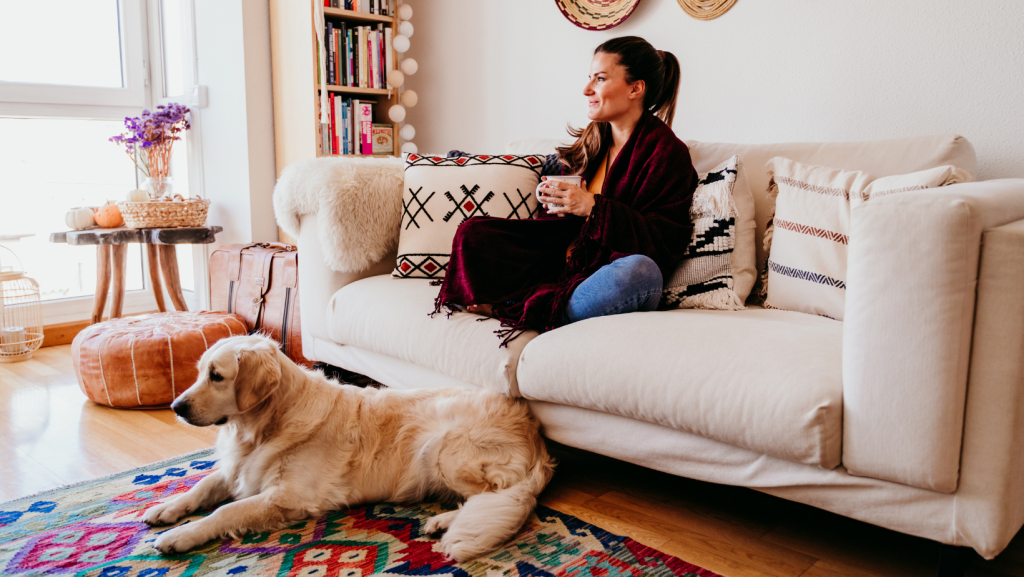I’ve been a therapist my entire career. And I’ve been a Highly Sensitive Person my whole life. Like so many of the patients I treat, there are things I wish I had known growing up as a Highly Sensitive Person (HSP). Things that didn’t have recognition, let alone a voice, until I was well into my adulthood.
Given that Dr. Elaine Aron didn’t publish her now iconic book until 1996, most people grew up without awareness of sensitivity. And they didn’t have parents and teachers prepared to recognize and respond to expressions of the trait.
In the almost three decades since The Highly Sensitive Person hit the shelves, millions of lives have been enlightened. Maybe even saved.

And ongoing research is revealing more and more details about the trait of high sensitivity.
One example is the long-held statistic of 15-20% of the population being highly sensitive. Recent studies suggest that percentage is more like 20-30, with three distinct levels being used to describe environmental sensitivity.
What’s more, by studying children from birth, research can now provide longitudinal data and relevant advice for benefiting sensitive children.

Those of us who grew up as Highly Sensitive Children (HSCs) before this information came to light are left wondering: How would my life have been different if my sensitivity had been recognized in childhood?
So yes, there are things I wish I had known when growing up as an HSP. Things that would have freed me up to be myself with confidence that I was not flawed in some way.
But my interest isn’t just what I wish I had known. Working with thousands of HSPs in a therapeutic setting over the years has exposed me to just as many stories.
Especially for patients who grew up before high sensitivity was widely discussed, the wish to “have known” is often deep-seated. How would my childhood have been different? How would my adulthood be different now?

While we can’t go back and change the past, we can certainly learn from it. And we can use what we learn to lend perspective and understanding to our memories.
From the therapist and her patients: 11 things I wish I had known when growing up as an HSP
Below are the 11 things I most commonly hear as the things HSPs wish they had known when growing up sensitive. Some are my own reflections as an HSP, and some come from patients (generalized for anonymity) and other fellow-HSPs.

(Which ones resonate with you? Please share your reflections in the comment section below.)
- I wish I had known there was such a thing as high sensitivity.
This is probably a no-brainer. If we had known — if those with authority in our lives had known — what would have been different?Of course, information is only as valuable as how we use it. And we can only hope that those “in the know” would have used their knowledge to benefit us as HSCs. - I wish I had known that being highly sensitive didn’t make me flawed, but actually made me fabulous.
If I could identify a common thread of discontent amongst HSPs, it would be this.Even today, when we know so much more about this neurological temperament called high sensitivity, HSPs still struggle. And given their minority in the population, the struggle isn’t completely surprising.But growing up is difficult enough. We all know that kids can be cruel. And youth who perceive and feel beyond the norm are especially vulnerable to labeling, bullying, and isolation.For all of us who grew up hearing “Crybaby! You’re sooo sensitive!” wouldn’t it have been a game changer to know the inherent gifts of sensitivity?
If only we could have had a glimpse into the future and better considered the source of the ridicule.
- I wish I had known ways to help me manage the effects of high sensitivity.
Like every trait, quality, tendency, or habit, high sensitivity needs to be managed if the HSP is going to thrive. And, while that may sound logical, to a young HSP navigating all the “firsts” and possibilities of life, it’s challenging.How I wish I had known that scheduling time to recharge was essential to my mental and physical health. (Of course, tell that to a teenager who is often go-go-go 24/7.)How I wish I had started journaling earlier, with no agenda other than to dump and explore my feelings unedited.How I wish I had felt comfortable and confident in opting out of social events that really weren’t “me.”
And how I wish I had known how to handle my emotions when they came flooding in like a tsunami.
I can’t help but wonder how much more sense my life would have made if I had known how to manage my sensitivity.
- I wish I had known that being introverted didn’t mean I was anti-social or weird.While some HSPs are extroverts, most HSPs are introverts. The tendency toward introversion is very much in keeping with the HSP’s comfort with his/her inner life.The HSP is naturally more reflective (depth of processing is a defining characteristic) and needs regular alone-time to recharge. The brief explanation for that is: Introverts draw energy from their mental life. They don’t rely on external arousal for energy, and social gatherings are more draining than anything..
Unlike shyness, characterized by a desire to interact but discomfort and reluctance to do so, introversion isn’t “anti-social.” Introverts socialize easily but prefer to socialize with fewer people, for shorter lengths of time, and with more meaningful engagement.
So, as I think back to being labeled as “shy,” I actually feel badly for that child. I liked interacting with others, but I couldn’t tolerate small-talk and disingenuousness. I craved meaningful connections in calm, peaceful settings.
And, as I became a teenager and kids were experimenting with alcohol and “pushing the limits,” I became very uncomfortable. It wasn’t me. So, more and more, I didn’t fit in.
What I wish I had known when I was growing up highly sensitive is that my introversion was a beautiful quality. I believe it was foundational to my exceptional empathy for my age and even my ease of communicating with adults.
And now I realize that my introversion has allowed me to create genuine relationships – with others and with myself.
- I wish I had known that intense anxiety and GI issues were high-sensitivity responses to my home life.A fellow-HSP once told me the story of growing up as a child of divorce in a dysfunctional home. There was always fighting between her parents, even after the divorce. And visitation weekends were a source of great anxiety, even after a custody change.Here’s how she described it:
In those days, “shared custody” wasn’t the norm. There was a guardian-parent, and the non-guardian got visitation rights every other weekend for 48 hours.
My parents never stopped waging war on one another, and they did it through my sister and me. We were essentially pawns. Add in a stepmother, and the agony was just triangulated.
When visitation weekends came about, there was always a power-play that happened. Our father wouldn’t bring us home on time (and this was long before cell phones) when my mom had custody. Our stepmother would lock us out of the house, or she would tell us we couldn’t see our mom after custody was changed.
It was always something.
What I most remember from those years was feeling numb and sick at least 24 hours before going “home.” The anxiety was foreboding, and it was always accompanied by severe GI distress. I was always sick to my stomach. Nauseous, constipated, numb.
And it wasn’t only on visitation weekends. It was all the time, really. School and our grandmothers’ homes were our only safe havens because “home” wasn’t safe.
I always thought of my sister as the extrovert: social, popular, adept at playing both sides to her advantage.
I, on the other hand, was deeply introverted: studious, cautious, academically accomplished, and definitely a loner.
As it turned out, my sister hid a severe eating disorder until it couldn’t be hidden anymore. It, along with the emotional scars, would damage her health for the rest of her life.
And I still feel numb and nauseous when my security and well-being feel threatened.
Or when I simply remember.
What do I wish I had known when I was growing up as an HSP? I wish I had known that I wasn’t “messed up.” I wish I had known that my physical responses had an explanation – that stress is exacerbated for the HSP.
And I wish I had had a benevolent witness to teach me to listen to my intuition…and my body.
- I wish I had known that high sensitivity and a difficult home life put an HSP at higher risk of depression.A major topic within the study of high sensitivity is something called differential susceptibility.
This fascinating concept says, in short, that Highly Sensitive People are deeply affected by their environments, for better or worse.
That means that HSPs who had good childhoods will thrive even more than non-HSPs with similar childhoods. Their responses to their positive upbringings are, in true HSP fashion, more “intense.”On the other hand, HSPs who had negative, troubling childhoods will suffer more than non-HSPs with similar childhoods. They will be more prone to anxiety and depression, for example. They will be the worriers and averse to criticism.
Their responses to and assimilation of their negative upbringings are, in true HSP fashion, also more “intense.”
Perhaps not surprisingly, they will stand out more so than their HSP counterparts who had positive childhoods.
That’s because the latter will basically “disappear” into the fold. They will shine in their creativity and other sensitive qualities, seemingly unencumbered except for their need for downtime.
As a psychologist, I encounter the dark side of differential susceptibility all the time.
So many patients come to me with two major regrets: I wish I had known there was such a thing as high sensitivity when I was growing up. And I wish I had known my sensitivity and negative upbringing would set me up for depression in adulthood.
My heart wraps around these beautiful souls, as I can feel their longing for what could have been.
I can also feel their longing to experience the fullness of their sensitivity on the positive end of the spectrum. Without the anxiety. Without the depression. Without self-doubt.
While I can’t turn back the clock, I can give my patients and readers this encouragement:
HSPs respond more positively to intervention than non-HSPs do.
They are extremely sensitive to positive stimuli, whether from other people or from resources like self-help books.
This sensitivity makes them excellent ambassadors for the therapeutic process.
Perhaps it’s because they are so open to self-growth. Perhaps it’s because they are wired for awareness.
Perhaps it’s because they never lose sight of the possibilities.
Whatever the reason for this consolation to the dark side of differential susceptibility, HSPs heal well with positive intervention.
- I wish I had known how to identify high sensitivity in myself and others.
When I think about growing up as an HSP, I think back on my friendships as well as my aloneness. I intuitively gravitated toward those who were, I suppose, most like me in temperament.But no one at that time was talking about the topics that we readily lay on the table today. High sensitivity, depression, therapy, suicide — we simply hadn’t normalized these topics, so we didn’t discuss them openly.I can’t help but wonder now if there were friendships I missed out on or sources of help I didn’t see.And I wonder how many other sensitive souls were walking alongside me, longing to be recognized and known as sensitive.
- I wish I had known how to find emotional support.
We’ve all heard of it: the power of one caring adult in a child’ life.
- While we’d hope a child’s parents would be the benchmark for emotional support, that’s not always the case. And, even in the best circumstances, a variety of positive influences and sources of support is ideal.
For someone growing up as a Highly Sensitive Person, finding reliable support isn’t easy. It means recognizing those who understand the sensitive temperament and are probably sensitive themselves.When adults are well informed about sensitivity and other neurodivergent traits, they can (and should) take the initiative to help. And one of the most important ways of helping a child is teaching him how to find help. - I wish I had known how to make important choices considering my sensitivity.
This is especially relevant to teens and young adults whose lives are defined largely by increasing choice and responsibility. They have more independence, and their choices in friends, activities, and academic pursuits can be influential.If a young Highly Sensitive Person doesn’t understand her trait, she is less likely to make choices that prioritize her well-being.The HSP is more often introverted than extroverted, for example. So trying to fit in with the social, partying crowd, however popular, can create hardships for the young HSP.Even choosing sports and extracurricular activities ought to take into consideration more than the child’s pure aptitude. Team sport vs. individual sport? Practice and competition schedules? Competition venues? Coaches and mentors?
Ideally these are all considered. And the HSP’s inherent need for alone time to recharge cannot be overstated.
Finally, understanding and managing sensitivity are crucial to choosing a college and career path. Enormous state school vs. small private school? Demanding, fast-paced career vs. flexible, more independent pursuit?
How often does the reality of a young person’s neurological needs factor into these major life decisions?
- I wish I had known that life as an HSP would get better.
Finally, I think I can speak for my patients, fellow-HSPs, and myself when I say:
I wish I had known when I was growing up as an HSP that life would get better.
No, adulting isn’t always fun. But coming into our own means we get to make choices we didn’t as children.We also get to celebrate coming into awareness of our magnificent trait of high sensitivity. Even if no one celebrated or guided our sensitivity as children, we get to embrace it fully now.
Yes, I wish I had known that all those challenges of growing up sensitive would help me to evolve. Not just “grow up” or “mature,” but truly evolve into a person I love.

And I secretly wish I could go back and tell that little girl at the beginning of every day that she is amazing…

…and at the end of her day that she had made the world a much better place.
Dr. Elayne Daniels is a psychologist, consultant, and international coach in the Boston area whose passion is to help people celebrate their High Sensitivity…and shine their light.
To read more about High Sensitivity, check out some blogs here.


